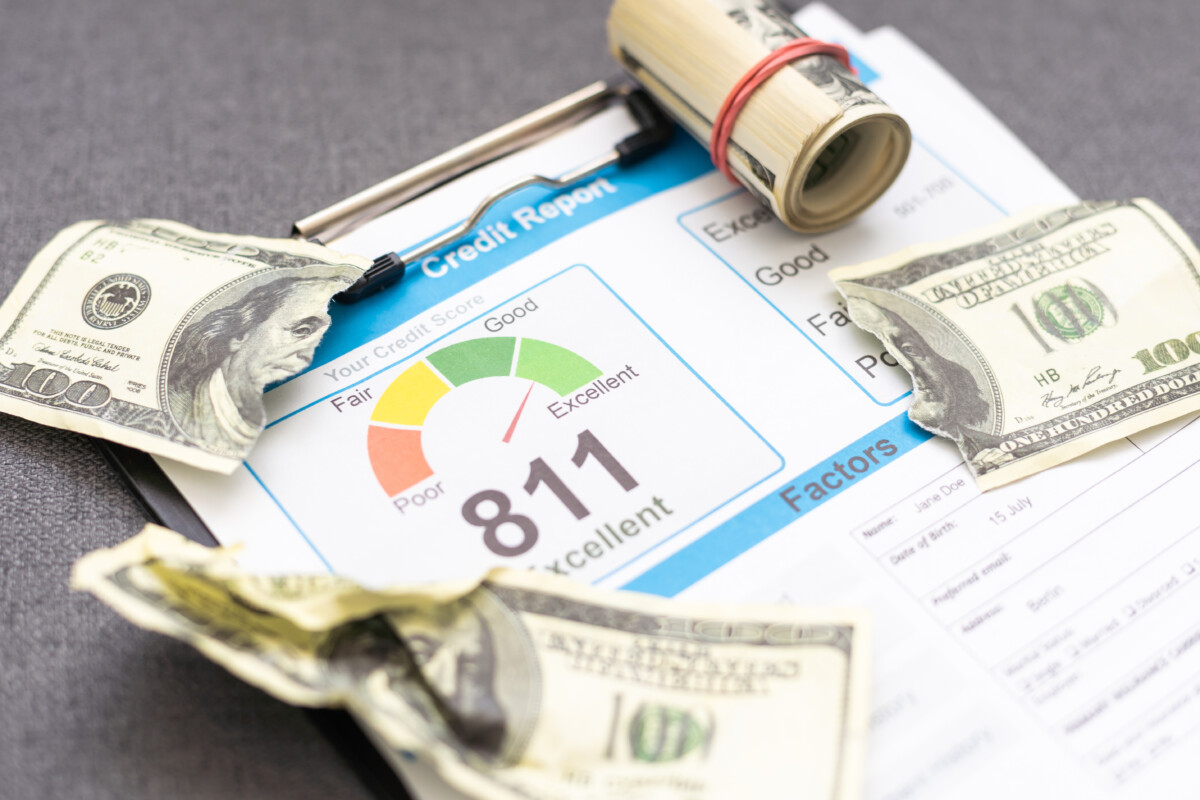

When unexpected bills hit, many people turn to cash advances for fast relief. But a big question arises — does a cash advance hurt your credit score? The answer depends on how and where you borrow.
Understanding the cash advance credit score impact helps you borrow smartly, avoid long-term damage, and protect your financial future. In this guide, you’ll learn how cash advances work, how they influence credit, and how to manage any risks that come with them.
If you’re looking for a safe and reliable cash advance option, visit AdvanceCash or call (833) 501-3363 today.
Understanding Cash Advances and How They Work
A cash advance is a short-term loan that allows you to borrow money before your next paycheck or through your credit card. It’s designed to cover urgent expenses such as bills, repairs, or emergencies.
There are two main types of cash advances:
-
Credit Card Cash Advances — You withdraw money against your card’s credit limit.
-
Payday or Short-Term Cash Advances — A lender provides quick funds, usually due by your next payday.
While convenient, both types can affect your finances and, in some cases, your credit score. Understanding how they’re reported to credit bureaus is the key to managing their impact.
Need a secure lender? Apply safely at AdvanceCash or call (833) 501-3363 for transparent terms and support.
Does a Cash Advance Hurt Your Credit?
The direct answer: a cash advance doesn’t always hurt your credit score — but it can, depending on how you handle it. Let’s break it down:
1. Short-Term Impact
Cash advances themselves are not automatically reported to credit bureaus. However, if you miss payments or default, the lender can report the issue, lowering your credit score.
2. Credit Utilization
If you take a credit card cash advance, the borrowed amount increases your overall balance. High balances raise your credit utilization ratio — one of the biggest factors affecting your credit score.
3. Interest and Fees
High-interest rates make repayment harder. If you delay or skip payments, your credit score will suffer over time.
4. Multiple Applications
Every time you apply for a loan, a lender may conduct a “hard inquiry.” Too many inquiries can drop your score temporarily.
In short, while getting a cash advance doesn’t directly harm your credit, poor repayment habits definitely do.
For peace of mind, choose AdvanceCash — a trusted provider that helps you manage short-term borrowing responsibly.
How Cash Advances Show Up on Your Credit Report
Understanding what appears on your credit report is crucial. Here’s what happens behind the scenes:
-
Credit card cash advances appear as part of your balance. They’re not labeled separately, but they increase your overall debt.
-
Payday or short-term cash advances are usually not reported unless you default.
-
Missed or late payments are reported and can stay on your report for up to seven years.
-
Collection accounts from unpaid cash advances severely damage credit health.
So, while borrowing once won’t destroy your score, continuous borrowing or late payments can lead to long-term harm.
The Connection Between Debt and Credit Scores
Your cash advance credit score impact depends largely on how much debt you carry. Here’s how the system works:
-
Payment history (35%) — Late or missed payments have the biggest negative effect.
-
Amounts owed (30%) — High balances increase your credit utilization ratio.
-
Length of credit history (15%) — New credit can reduce the average age of your accounts.
-
Credit mix (10%) — Too many short-term loans can lower your score.
-
New credit (10%) — Multiple loan applications can signal financial instability.
Knowing these categories helps you make informed borrowing decisions.
To avoid unnecessary risks, work only with transparent lenders like AdvanceCash or call (833) 501-3363 for responsible financial solutions.
How to Manage and Reduce the Credit Score Impact
You can borrow wisely without harming your credit. Follow these steps to manage risks effectively:
1. Borrow Only What You Can Repay
Never take more than you can comfortably pay back. Cash advances should cover short-term needs only, not recurring expenses.
2. Repay on Time
Even one missed payment can affect your score. Set reminders or enable auto-pay.
3. Monitor Credit Utilization
Keep your balances below 30% of your total credit limit to maintain a strong score.
4. Avoid Frequent Borrowing
Taking multiple advances in a short period signals financial stress to lenders and credit bureaus.
5. Build Emergency Savings
Having an emergency fund reduces your need for high-interest cash advances in the future.
6. Use Reputable Lenders Only
Always confirm a lender’s legitimacy. Scammers often charge hidden fees and harm your financial health.
To borrow from a legitimate and licensed lender, visit AdvanceCash — your trusted partner for safe and compliant loans.
Practical Tips to Protect Your Credit Score
Your credit score is your financial reputation. Here’s how to safeguard it when using a cash advance:
-
Plan repayments before borrowing.
-
Track spending and interest costs.
-
Avoid withdrawing from multiple cards.
-
Use budgeting tools to keep spending in check.
-
Regularly check your credit report through agencies like Experian or TransUnion.
You can also improve your repayment habits by following ExpressCash’s Smart Repayment Tips — a helpful guide to building better financial discipline.
Remember, responsible management keeps your credit score stable, even if you use short-term loans occasionally.
When a Cash Advance Might Be a Good Option
Sometimes, a cash advance can be a practical solution — especially when handled wisely. Here are situations where it might make sense:
-
Emergency medical bills when you can repay next payday.
-
Unexpected car repairs that can’t wait.
-
Short-term cash gaps due to delayed paychecks.
-
Avoiding overdraft fees that cost even more than loan interest.
In these cases, a cash advance gives you breathing space without long-term damage. The key is to repay promptly and work with regulated lenders like AdvanceCash.
For safe and transparent borrowing, contact us today at (833) 501-3363.
How Late Payments Affect Your Credit
Late payments are the most common reason cash advances hurt credit scores.
Here’s how they impact you:
-
30 days late: A small hit to your score.
-
60–90 days late: Significant drop; lenders may report to bureaus.
-
120+ days late: The account may go to collections, severely hurting credit.
If you anticipate difficulty making payments, contact your lender early. Many lenders, including AdvanceCash, can help adjust or guide repayment schedules to avoid damage.
Rebuilding Credit After a Cash Advance
If your credit score has dropped due to cash advance misuse, don’t worry — rebuilding is possible.
Here’s how to recover:
-
Pay off outstanding balances: Clear small debts first to reduce credit utilization.
-
Avoid new debt: Focus on stability before borrowing again.
-
Make consistent on-time payments: Even small loans paid responsibly rebuild trust.
-
Check for errors: Sometimes incorrect reporting affects your score.
-
Limit applications: Only apply for credit when necessary.
Staying disciplined and informed is the best path to a healthier score.
And when you’re ready for a safe, manageable loan, visit AdvanceCash or call (833) 501-3363.
Common Myths About Cash Advances and Credit Scores
Let’s clear some common misconceptions:
-
Myth 1: All cash advances automatically lower your credit score.
-
Truth: Only poor repayment or overborrowing does.
-
-
Myth 2: Payday lenders report every loan.
-
Truth: Most report only when payments are missed or accounts go to collections.
-
-
Myth 3: Cash advances can’t be managed safely.
-
Truth: With the right lender and repayment plan, you can use them responsibly.
-
-
Myth 4: Closing accounts improves your score.
-
Truth: Closing accounts can reduce your credit history length, lowering your score slightly.
-
Knowledge is your best protection. The more you understand these myths, the easier it becomes to maintain a strong financial record.
FAQs
Q1: Does a cash advance hurt credit if I pay it back on time?
No. If you repay your loan promptly, it usually doesn’t affect your credit score.
Q2: Do payday lenders report to credit bureaus?
Most don’t, unless your account goes unpaid or enters collections.
Q3: Can I rebuild credit after cash advance debt?
Yes. Pay on time, keep balances low, and use credit responsibly to recover.
Q4: How much can a cash advance affect my credit utilization?
It depends on your balance. Try to keep utilization below 30% of your total credit limit.
Q5: What’s the safest way to take a cash advance?
Borrow from a licensed lender like AdvanceCash and plan your repayment in advance.
Taking a cash advance doesn’t automatically harm your credit. But how you manage it makes all the difference.
Timely payments, responsible borrowing, and choosing licensed lenders protect your financial stability and your score.
If you’re looking for a safe, legal, and transparent loan, visit AdvanceCash or call (833) 501-3363 today.
And remember — smart repayment habits are your best defense. For guidance, check out ExpressCash’s Smart Repayment Tips to manage your loans effectively.
Protect your credit. Borrow wisely. And make every loan work for your financial growth.





